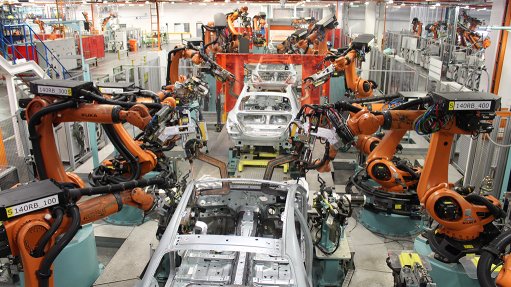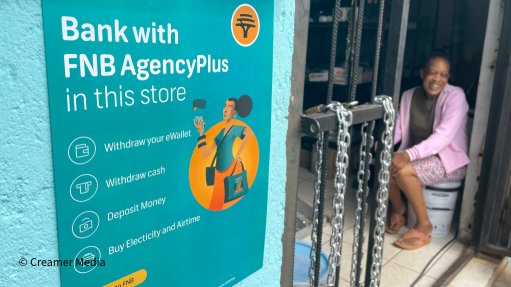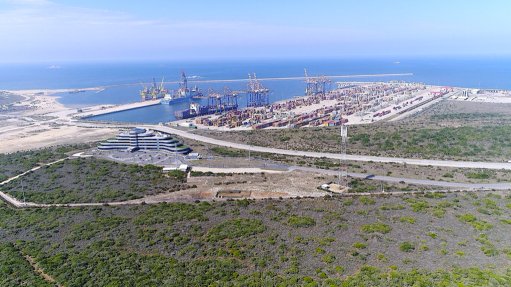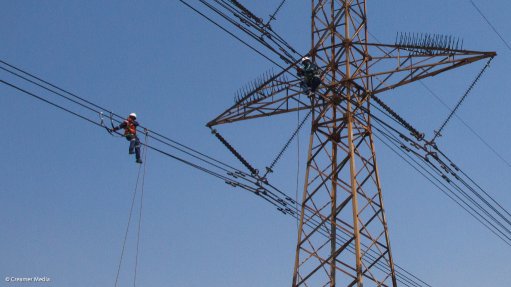R&D incentives pivotal for sector growth


DUANE NEWMAN Cova Advisory joint managing director and co-founder is a respected sustainability strategy and business consultant, with an expertise in grants, incentives and tax in the green economy
Photo by Paulo Jorge Photograpy
The direct correlation between successful economies and their investment into research and development (R&D), is the reason consultancy firm Cova Advisory joint MD Duane Newman says it is important for the local manufacturing sector and government continue to engage in the R&D incentives made available by government.
“There are at least four incentives that various government departments, such as the Department of Trade and Industry (DTI) and the Department of Science and Technology (DST), have made available to industry, which will prove . . . beneficial to the manufacturing sector.”
He mentions that Cova Advisory offers manufacturing companies advisory services on the Section 11D of the Income Tax Act, Support Programme for Industrial Innovation (SPII), Technology for Human Resource Industry Programme (THRIP) and the Technology Innovation Agency (TIA) incentives.
“The programmes deal directly with ways to improve investment in R&D in South Africa, which, in turn, help the country’s manufacturing sector grow and advance, as a result of the introduction of new products and processes,” adds Cova Advisory joint MD Tumelo Chipfupa.
Section 11D
Newman explains that the main aim of Section 11D is an incentive programme where the application process is done through the DST to encourage South African private-sector companies to invest in scientific or technological R&D. “This correlates directly with the manufacturing industry, where R&D is a key factor in growing the industry by boosting innovation in the business sector, as well as improving the capability for developing new products, processes and significantly improving existing ones.”
He adds that it is also important for improving competitiveness and growth in the South African economy.
Chipfupa notes that, over the past few years, the dominant challenge for businesses was the delay in the application process, which would take up to two years to complete. However, this has since improved, as the process now takes about four months.
For the sector to be aware of application delays, Newman points out that government did engage with applicants and advisory organisations through the Ministerial Task team to have an open understanding on some of the challenges that the sector faces regarding the programme. Government has been made aware of the shortfalls of the programme and is working with private companies to resolve the challenges.
However, he adds that “there have been improvements in the form of the Taxation Laws Amendment Acts in 2011 and 2013, which clarify the intentions of the incentive, as well as the introduction of a preapproval process for R&D activities”. Newman welcomed recent tax law changes in 2017 which acknowledged slow approval processes.
SPII
The SPII is managed by the DTI and is designed to promote technology development in South Africa’s manufacturing industry through the provision of financial assistance for the R&D of innovative products and processes. It is focused on the development phase, which begins after basic research, and ends when a preproduction prototype has been produced.
Newman laments that SPII is a programme that is struggling to progress, owing to delays in the appointment process.
“The DTI is accepting applications, but is struggling to appoint companies to execute due diligence on those projects.
“The incentives for companies to use SPII are there in theory, but owing to delayed engagements, are causing ‘bottlenecks’ in applications, and incentives are not properly executed. If there are not any applications approved, the programme no longer incentivises possible investors, and it will stagnate.”
However, if the SPII, which offers the Product Process Development Scheme and Matching Scheme, is executed correctly and timeously, it will provide an innovation boost for South Africa’s technology development.
“New products and processes are necessary to improve and revolutionise the country’s manufacturing industry. SPII also has lower innovation hurdles, which allows for a bigger market of new products and processes in their developmental phase to be considered,” adds Chipfupa.
THRIP
The THRIP, run by the DTI, was established to increase the number of people who have appropriate skills in the development and management of research-based technology for industry, owing to the increased emphasis of the importance of technology in economic development. This resulted in the inception of the programme. It aims to enhance and extend the cooperation between higher education institutions; science, engineering and technology institutions; government; and industry to increase South Africa’s competitiveness.
Newman says the THRIP is more structured, with an application window process, during which applications can be sent only within a specific timeframe. The question arises, however, whether applications will be approved or rejected timeously to ensure a constant flow of applications.
He believes that government must be encouraged to give negative feedback. However, Chipfupa emphasises that the THRIP’s gated process and short application window should ensure that feedback is provided quicker. Hesitance will cost government and prospective investors time, money and effort, and flood government systems with application information that is irrelevant.
“THRIP is important to developing high- level research skills for the manufacturing sector, owing to its emphasis on research in the fields of science engineering and technology. Focusing on growing participants in these fields will result in more R&D in the manufacturing sector.”
Technology Innovation Agency
The TIA reports to the DST and allows for R&D in strategic and emerging focus areas, such as space science, energy, nanotechnology, photonics and indigenous knowledge systems. It is aimed at promoting the realisation of commercial products, processes and services from R&D outputs by implementing policy instruments, which are government interventions intended to achieve public-policy outcomes.
The TIA has a filtering process similar to the THRIP’s application window process but without the fixed application window. “When a project is ready for submission, a concept note, or summary of a proposal with a brief description of product ideas and objectives, accompanies its submission. If the DST favours the concept note, it will request a more detailed application,” explains Newman.
He adds that the challenge arises when “the pile of applications does not shrink”, and certain applicants do not get a request for a more detailed application. However, the TIA has been very open and has acknowledged that and is working to improve its turnaround time process, “which is a definite step in the right direction”.
Newman comments that there is an abundance of R&D support, an element essential in developing the local manufacturing industry.
“Although the number of incentive programmes can be overwhelming, it indicates South Africa’s willingness to grow and improve the manufacturing industry, as well as other sectors essential to economic growth.” He concludes that the ultimate question is whether industry needs all these programmes to be consolidated under one agency. It makes sense to do so.
Comments
Press Office
Announcements
What's On
Subscribe to improve your user experience...
Option 1 (equivalent of R125 a month):
Receive a weekly copy of Creamer Media's Engineering News & Mining Weekly magazine
(print copy for those in South Africa and e-magazine for those outside of South Africa)
Receive daily email newsletters
Access to full search results
Access archive of magazine back copies
Access to Projects in Progress
Access to ONE Research Report of your choice in PDF format
Option 2 (equivalent of R375 a month):
All benefits from Option 1
PLUS
Access to Creamer Media's Research Channel Africa for ALL Research Reports, in PDF format, on various industrial and mining sectors
including Electricity; Water; Energy Transition; Hydrogen; Roads, Rail and Ports; Coal; Gold; Platinum; Battery Metals; etc.
Already a subscriber?
Forgotten your password?
Receive weekly copy of Creamer Media's Engineering News & Mining Weekly magazine (print copy for those in South Africa and e-magazine for those outside of South Africa)
➕
Recieve daily email newsletters
➕
Access to full search results
➕
Access archive of magazine back copies
➕
Access to Projects in Progress
➕
Access to ONE Research Report of your choice in PDF format
RESEARCH CHANNEL AFRICA
R4500 (equivalent of R375 a month)
SUBSCRIBEAll benefits from Option 1
➕
Access to Creamer Media's Research Channel Africa for ALL Research Reports on various industrial and mining sectors, in PDF format, including on:
Electricity
➕
Water
➕
Energy Transition
➕
Hydrogen
➕
Roads, Rail and Ports
➕
Coal
➕
Gold
➕
Platinum
➕
Battery Metals
➕
etc.
Receive all benefits from Option 1 or Option 2 delivered to numerous people at your company
➕
Multiple User names and Passwords for simultaneous log-ins
➕
Intranet integration access to all in your organisation



















